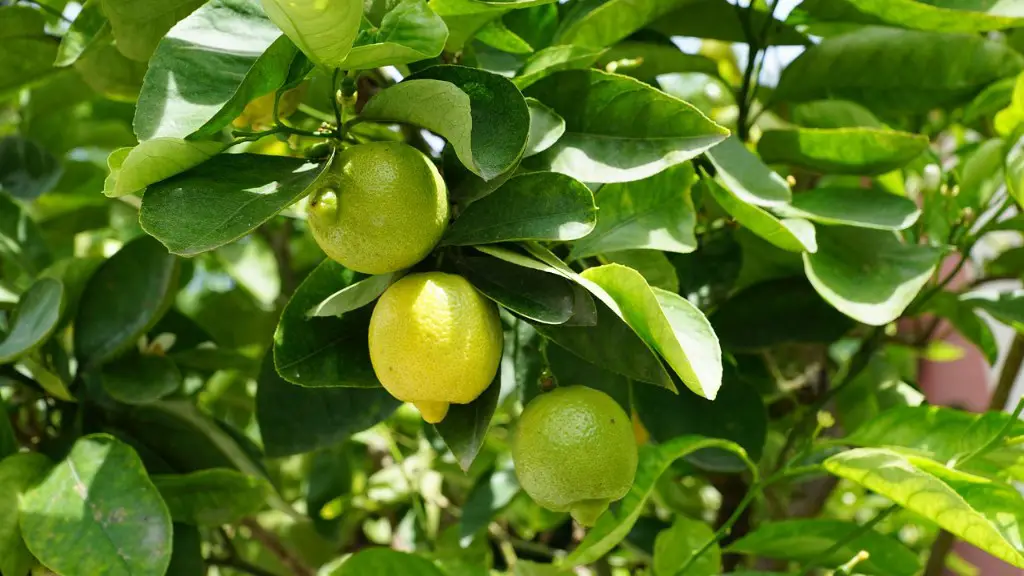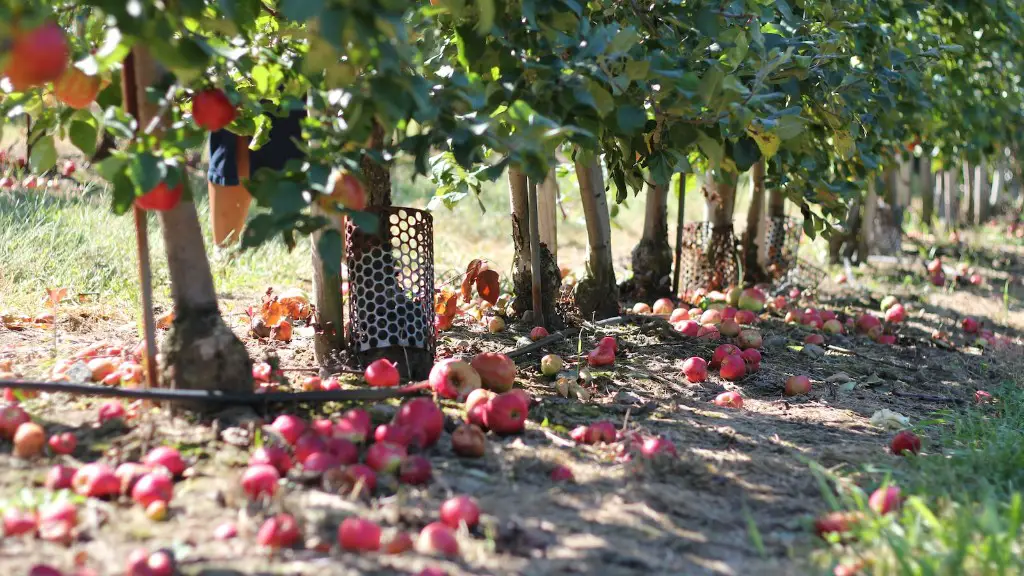Can I plant succulents under a lemon tree? Succulents, or any other plants, should not be planted directly under a lemon tree. Lemon trees need well drained soils, so the roots of the succulents won’t get enough moisture. Moreover, lemon trees grow tall and produce dense shade, which can block out the sunlight that succulents need to thrive.
Both lemon trees and succulents love soil with good drainage. Therefore, an ideal compromise would be to create an elevated soil bed that is not shaded by the lemon tree. The succulents can be grown in the bed on top of the soil and the lemon tree can be grown in the surrounding soil.
In addition, succulents need well-aerated soil. The soil around a lemon tree is likely to be too compact due to the roots of the tree. Therefore, it would be better to plant the succulents in a different area that is away from the lemon tree.
Furthermore, lemon trees require more water and nutrients than succulents. Therefore, it is important to be mindful of the amount of water and nutrients you give to both plants. Too much water and nutrients can cause the succulents to rot and the lemon tree to get too tall.
Moreover, lemon trees tend to attract pests such as aphids and mealybugs. Therefore, it is important to check for infestations regularly when growing both succulents and lemon trees. Additionally, lemon trees are susceptible to a variety of diseases, such as leaf spot and canker, so it would be beneficial to check for signs of diseases as well.
Overall, it is not advisable to plant succulents directly under a lemon tree. However, it is possible to grow them in the same area as long as certain precautions are taken, such as creating an elevated soil bed, ensuring the soil remains well-aerated, and monitoring for pests, diseases, and nutrient levels.
Growing in Containers
Growing succulents in containers is an excellent way to enjoy them and keep them away from a lemon tree. By using containers, succulents can be placed in locations where they can receive the right amount of sunlight, water, and nutrients without being shaded by the lemon tree.
Planters with wheels, hanging baskets, and even wall-mounted planters can all be used to cultivate succulents. Moreover, succulents can be placed in a variety of decorative containers such as terra-cotta pots, glass jars, and vintage teacups. Containers offer a great way for gardeners to add a touch of personality to the garden.
When growing succulents in containers, it is important to make sure that the containers have adequate drainage. Poor drainage can lead to root rot, which will eventually kill the plant. Therefore, it is important to use containers with several drainage holes and to periodically check that the water is not stagnating.
In addition, it is important to place the containers in an area where they will receive adequate sunlight. Most succulents need at least six hours of direct sunlight per day in order to thrive. Therefore, containers should be placed in an area that receives full sun, such as a balcony or outdoor patio.
Finally, it is important to water the succulents appropriately. Succulents need to be watered deeply and infrequently; overwatering can lead to root rot and cause the succulents to die. Therefore, it is important to wait until the soil is dry before watering the succulents again.
The Benefits of Growing Succulents and Lemon Trees Together
Despite the fact that succulents and lemon trees should not be planted directly under each other, there are many benefits to having both plants in the same garden. Succulents and lemon trees have similar water and nutrient needs, so they can benefit from the same soil.
Both plants are also low-maintenance and easy to care for. Additionally, succulents can act as a natural mulch for the lemon tree, protecting the soil and the tree’s roots from wind and water erosion. Succulents are also an attractive addition to any garden, adding color and texture.
Moreover, planting both succulents and lemon trees together can help create a habitat that attracts wildlife, such as birds, butterflies, and bees. This can also help attract beneficial insects, such as ladybugs, which can help control pest infestations in the garden.
In addition, lemon trees produce citrus fruits, which can be used in cooking or even as a natural remedy. By growing both succulents and lemon trees, gardeners can enjoy both plants for their aesthetic and practical purposes.
Essential Considerations
When planting succulents and lemon trees together, it is important to take certain considerations into account. Gardeners should be aware of how much space they have available and plan their garden accordingly. It is also important to be mindful of how big the plants will get and make sure that there is enough light and water available for both.
In addition, gardeners should be mindful of the soil conditions and use a soil mix that is suited for both plants. Poor soil can lead to problems such as root rot, which can damage and even kill both plants. Therefore, it is important to use a well-draining soil mix.
Furthermore, gardeners should also be aware of the potential for pests and diseases. Both succulents and lemon trees can be susceptible to infestations and disease, so it is important to check for signs of problems regularly.
Finally, it is important to be mindful of the amount of water and nutrients that are given to both plants. Succulents need less water than lemon trees, so it is important to be careful not to overwater them. Additionally, too much fertilizer can lead to nutrient deficiencies, which can damage both plants.
Tips for Successful Growing
Gardeners who want to successfully grow succulents and lemon trees together should follow a few basic tips. The first tip is to start with young plants, as they are easier to care for and more resilient. Additionally, both plants should be regularly watered and fertilized to ensure they stay healthy.
Another tip is to properly prune the plants when necessary. Pruning helps keep the plants healthy and promote new growth. Additionally, to discourage pest and disease problems, gardeners should keep the plants free of debris and check for signs of pests and diseases on a regular basis.
Finally, when planting succulents and lemon trees together, it is important to use a soil mix that is suitable for both plants. A soil mix that is well-draining and rich in organic matter is the best choice.
By following these tips, gardeners can successfully grow both succulents and lemon trees together and enjoy the benefits of both plants in the garden.




